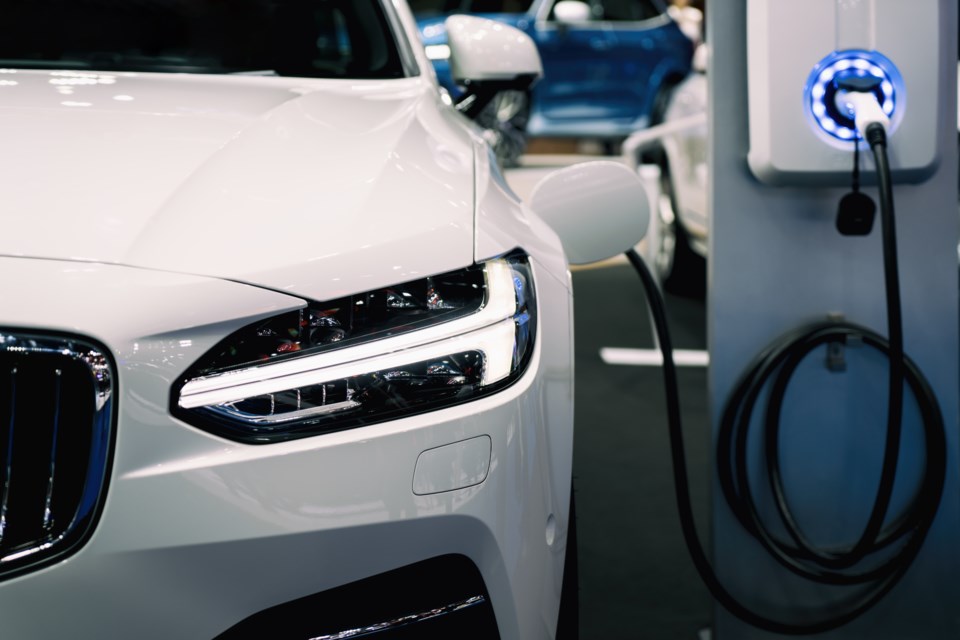As the market for electric vehicles (EVs) continues to evolve, so too does the willingness of consumers to buy them. This is a fact backed up by recent sales data. As the 2023 model year wrapped up, reports from S&P Global Mobility suggest that market share for zero-emission vehicles (ZEVs) in Canada had climbed to over 13 percent by the third quarter of last year. In Ontario alone, sales of EVs grew from 7.2 percent to 8.7 percent year to year.
Those numbers for sales of battery-electric vehicles, plug-in hybrids, and hydrogen fuel cell vehicles were partially driven by government policy as Canada heads toward its target of banning all internal combustion vehicles (ICE) by 2035. However, the increase is also driven by the willingness of carmakers to increase the manufacturing of EVs and a growing demand from consumers considering purchase.
With 2024 guaranteed to see more EV sales growth, it’s important for consumers considering the purchase of an EV to know more about the vehicles and the type of drivers who might be prime candidates for owning one.
“To me the most obvious thing to consider prior to purchasing an EV is your daily driving habits,” said Adam Bourgeois, owner of the Bourgeois Auto Group of car dealerships. “I know range anxiety is an issue for most people, but I do think that is unfounded when you look at your everyday use of a vehicle.”
According to Bourgeois, an average driver racks up 20,000 to 25,000 kilometres a year. That amounts to approximately 500 kilometres a week, which is easily managed when driving a typical EV model.
“For someone in the Midland area commuting daily to Toronto the range of the EV is there. It would get you round trip no problem,” he said. “Plug it in once or twice a week at home and you’re good. Take advantage of cheap rates overnight and the cost is negligible.”
To test the capability and dependability of the EVs he sells through the four local dealerships that make up Bourgeois Auto Group, Bourgeois has been driving a Ford F-150 Lightning full EV for the past two years. He said in that time he’s never come close to fully draining the charge on his EV.
“I can get 500 kilometres of range in good weather and about 400 kilometres in cold weather. I can go to downtown Toronto and back on a single charge. I’ve had the vehicle for two years and I’ve only plugged it in at a public charger a couple times, more so just to see what that experience is like. Most people will do all their charging at home.”
Another important thing to consider prior to purchasing an EV is available access to charging capabilities in your primary residence. While EV owners don’t need to install a full charging station, they will need easy access to a proper power source.
“You don’t actually need a full-on charger,” Bourgeois explained. “You just need access on your electrical panel to handle a 240-volt plug, the same as your dryer would use. That will draw 50 amps and that’s adequate to charge any vehicle.”
Even if your driving habits are well suited to EV ownership and your home is able to accommodate easy access to power, Bourgeois acknowledges that switching to an EV from a traditional ICE vehicle may not be for everyone.
“I wouldn’t recommend buying an EV if you’re 100 percent relying on public charging,” he said. “I also wouldn’t recommend an EV, particularly for a truck buyer, if you are doing a lot of long trips. I don’t recommend it now but will probably change my opinion in future as the infrastructure gets built out.”
As for the many reasons for considering purchase, Bourgeois said that today’s EVs offer exceptional power, luxurious interiors, many additional features, and an incomparable driving experience.
“The new EV vehicles are exhilarating to drive. You have to drive one to fully experience it. There is no transmission in the vehicle, less moving parts, and EVs have tons of instant power. I think it’s safer when accelerating onto the highway when you have instant power. It’s more fun to drive. There is also tons of technology in the vehicles. They are like giant iPhones on wheels.”
If there is one determining factor that may dissuade buyers from choosing a new EV it’s the price: Bourgeois acknowledges that new EVs can cost more than their gas-powered counterparts.
“That’s the one hinderance and it’s no secret,” he said. “I do think that as they ramp up production on EVs that the price will continue to come down. They’ll be more affordable for the average consumer over time. And I think the infrastructure will continue to be built out to make EVs more manageable to drive.”
Before you make your final decision on EVs, Bourgeois invites you to drop into any of the Bourgeois Auto Group dealerships to learn more or to test drive any vehicle, including the Ford F-150 Lightning and Mustang Mach-E, Hyundai KONA EV, Ionic 5 and Ionic 6, or the Nissan Leaf and Ariya.
